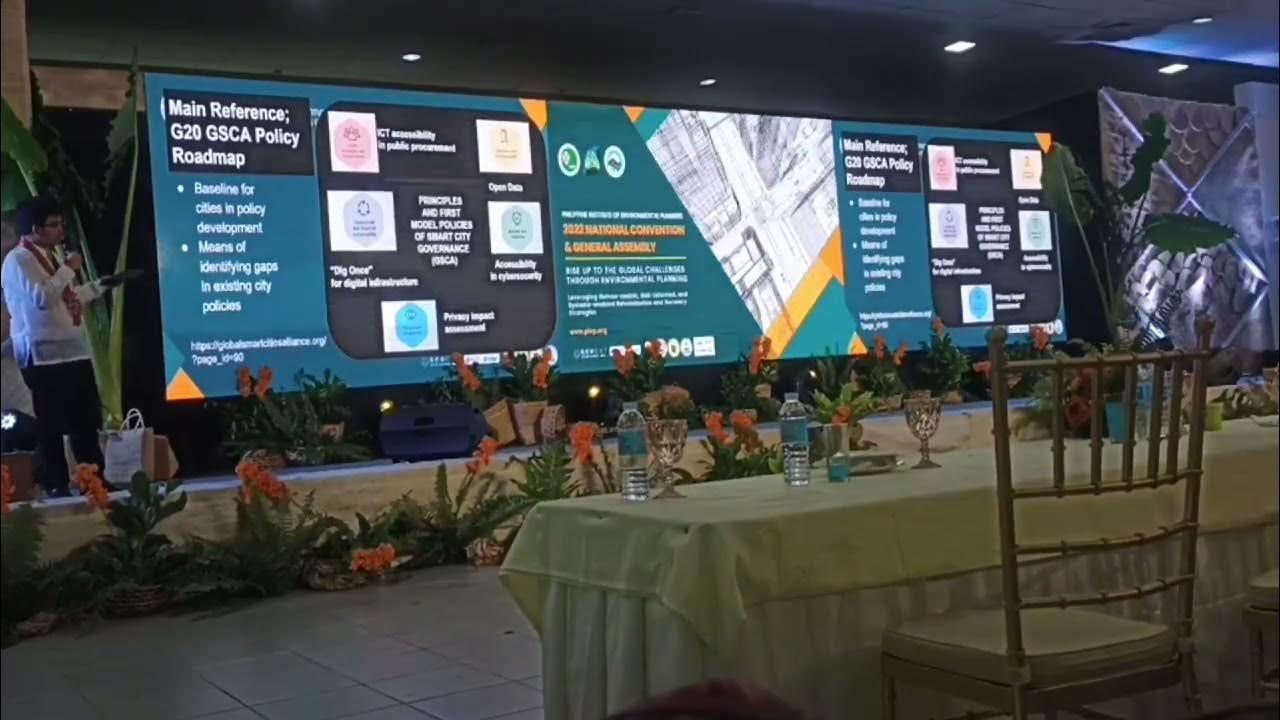Política Nacional de Resíduos Sólidos - Lei 12.305/10
Summary
TLDRThis video highlights the importance of waste management and the role of the 2010 National Solid Waste Policy in Brazil. It explains how materials are categorized into recyclable, reusable, and non-reusable waste, emphasizing the shared responsibility of individuals, businesses, and governments in managing waste. The policy also introduces reverse logistics, encouraging producers to take back waste materials for recycling. It stresses the need for proper waste management practices, the value of waste pickers, and their recognition as essential to the system, ultimately calling for action to protect health and the environment.
Takeaways
- 😀 Waste materials are divided into two categories: recyclable materials, which can be reused, and non-recyclable waste, which cannot be used again.
- 😀 The Law 12.305/2010 was created to ensure responsibility for the waste produced, encouraging recycling and waste reduction.
- 😀 The law establishes that those who produce more waste should pay more, while those who reduce their waste should receive benefits.
- 😀 Everyone, including individuals, businesses, and governments, is responsible for managing waste and should minimize its impact on health and the environment.
- 😀 Waste management practices are referred to as integrated waste management, involving all sectors of society.
- 😀 Manufacturers are required to take back waste materials such as pesticide packaging, tires, and electronics for recycling, through a system known as reverse logistics.
- 😀 Municipal governments are responsible for cleaning public spaces like streets and parks and managing waste collection and disposal.
- 😀 The types of waste include dry waste (recyclable), wet waste (used for composting), toxic waste (hazardous to health), and rejects (non-reusable).
- 😀 Catadores (waste pickers) and their associations play a critical role in waste management, contributing to employment, income generation, and environmental preservation.
- 😀 Brazil is one of the few countries to officially recognize waste pickers as a vital part of the waste management system, helping in recycling efforts and waste reduction.
- 😀 The law emphasizes the importance of involving waste pickers in waste planning, and individuals are encouraged to advocate for their rights and participation in waste management practices.
Q & A
What are residues, and how are they classified?
-Residues refer to materials that are discarded, such as packaging, food waste, and old objects. They are classified as either recyclable or waste. Recyclable materials can be reused, while waste materials cannot be used again.
What is the purpose of Law 12.305 of 2010?
-Law 12.305 of 2010 aims to establish the responsibility of individuals and organizations for managing the waste they generate, promoting waste reduction and the reuse of materials.
What does the law say about waste producers?
-The law states that those who produce more waste should pay more, while those who reduce waste generation should receive benefits.
What are the two key concepts mentioned in the law?
-The two key concepts are that everyone, including individuals, businesses, and governments, generates waste, and that actions to address waste problems are referred to as integrated waste management.
Who is responsible for waste management, according to the law?
-The responsibility for waste management falls on everyone involved, including consumers, manufacturers, distributors, retailers, and public cleaning services.
What is reverse logistics as outlined in the law?
-Reverse logistics refers to the obligation of manufacturers to take back certain types of waste products, such as pesticide packaging, tires, oil, lamps, electronic waste, batteries, and medicines, for reuse or recycling.
What are the public services related to waste management?
-Public services related to waste management include street cleaning, trash collection, transportation, treatment, and proper disposal of household and street waste.
What types of waste does the law categorize?
-The law categorizes waste into four types: dry waste (typically recyclable), wet waste (which can be used for compost), toxic waste (harmful to health, such as hospital waste), and rejects (waste that cannot be reused).
Why are waste pickers important in the national waste management system?
-Waste pickers are crucial for generating employment, reducing waste, and preserving the environment. They help with the recycling process and contribute to conserving cities and nature.
What role does the law play in the inclusion of waste pickers?
-The law acknowledges the importance of waste pickers and their associations in the waste management process, requiring governments and companies to include them in waste collection planning and to ensure their rights are respected.
Outlines

This section is available to paid users only. Please upgrade to access this part.
Upgrade NowMindmap

This section is available to paid users only. Please upgrade to access this part.
Upgrade NowKeywords

This section is available to paid users only. Please upgrade to access this part.
Upgrade NowHighlights

This section is available to paid users only. Please upgrade to access this part.
Upgrade NowTranscripts

This section is available to paid users only. Please upgrade to access this part.
Upgrade NowBrowse More Related Video

RA 9003 PHILIPPINE ECOLOGICAL SOLID WASTE MANAGEMENT ACT OF 2000

Grade 10 AP Q1 Ep3: Suliranin sa Solid Waste

Creating SMART Solid Waste Management Policy for Local Government Units

Doc TV Unesp | Reciclagem e Reaproveitamento #tvunesp

Documentário: Sustentabilidade, desafio de todos

As Recicláveis - Documentário
5.0 / 5 (0 votes)